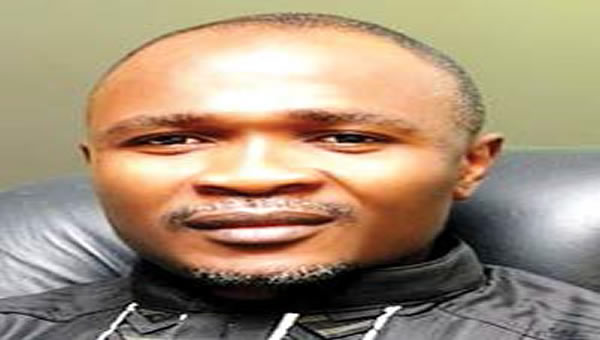The battle for the office of the Speaker of the House of Representatives is turning members of the minority ‘family’ against one another and creating cracks in the walls of the Peoples Democratic Party caucus, writes LEKE BAIYEWU
The race for the leadership of the coming 10th National Assembly is getting hotter, leading to the creation of coalitions and alliances, especially among members-elect in the opposition parties, with the hope of using their numbers as a bargaining chip for power.
In the House of Representatives, the first significant coalition emerged on April 5, 2023, at a meeting that had members-elect of all the seven minority parties represented. At the meeting were old and newly elected members of the House on the platforms of the Peoples Democratic Party, Labour Party, All Progressives Grand Alliance, Social Democratic Party, African Democratic Congress, Youth Progressive Party, and the New Nigeria People’s Party. The lawmakers-elect on the platform of the opposition parties had allied ahead of the inauguration of the 10th Assembly in June, not only to determine the leadership of the minority caucus but also the parliament. The members-elect unanimously adopted the slogan, ‘10th Assembly: Greater Majority,’ at the meeting.
A twist, however, occurred on Thursday when a member of the ruling APC and another in the opposition PDP jointly stated in Abuja to announce an alliance across party lines, claiming that 283 members-elect of the House had resolved to abide by the zoning plan of the ruling party. The APC-PDP alliance led by Bello Kumo of the APC, and Kingsley Chinda of the PDP, which emerged on Thursday, had adopted ‘Joint Task – 10th Assembly’. The APC-PDP alliance had confirmed the report by The PUNCH, on Wednesday, that more crisis was brewing in the PDP over which of its factions would nominate leaders for the minority caucuses in the coming 10th National Assembly.
In the statement jointly issued by Kumo and Chinda, the chairman and co-chairman of the alliance respectively, the APC and the PDP members claimed that they had the endorsement of governors across party lines as well as the National Working Committee of the several parties. Apart from supporting the APC on who becomes Speaker of the House in the coming 10th National Assembly, the ruling party would also play a role in the emergence of leadership for the minority caucus.
The statement was titled ‘10th House: Coalition of lawmakers-elect commits to respect zoning decision…as 283 lawmakers-elect, governors, others endorse new forum for a joint task for a united, progressive Nigeria.’
It partly read, “The coalition, known as the ‘Joint Task – 10th Assembly,’ comprises 283 members-elect from the APC, the PDP, the Labour Party, the NNPP, the SDP, the APGA, ADC, and the YPP. Already, 283 members-elect, comprising both returning and new members, have endorsed the coalition, which awaits the decision of the ruling APC on the zoning of the various offices. The coalition has the blessings of 14 APC governors, nine PDP governors as well as several National Working Committee members of the ruling and opposition political parties.
Kumo and Chinda stated that the forum was independent of the Speakership ambition of any of the various aspirants “but with determination to build a strong coalition of members-elect of the 10th House in readiness to support the majority party zoning of the Speakership office towards building a rancour-free and people-oriented 10th Assembly, and in line with best parliamentary practice.” According to the serving members of the House, members of the coalition agree with whatever the majority party – APC – zoning decision might be. The lawmakers also stated that members of the ‘Joint Task – 10th Assembly’ had agreed to put Nigeria first and allow the majority to form the leadership of the 10th House “with other opposition parties playing a major role.”
One of the leaders of the coalition by the opposition parties and member of the PDP, Oluwole Oke, while denying knowledge of the alliance between the APC and the PDP members, said, “It is one of such. APC, PDP, LP, NNPP, SDP, YPP APGA, ADC; all have their caucuses. Zonal caucuses also exist. So, it is not a new thing for us to come together to aspire to work together to be of service to Nigerians.” Oke also noted that, usually, a ‘Joint Task’ is formed when a Speaker emerges and wants to carry Nigerians along irrespective of party affiliations. “This was invented by Speaker Femi Gbajabiamila and, in all honesty, it was rewarding. Members were able to take home projects that benefit the electorate,” he said.
When reminded of the fact that the Kumo/Chinda-led APC/PDP alliance resolved to back the leadership zoning plan of the ruling party, Oke said, “The President of a country is a father of all. In a parliament, nobody should hide under the name of the President to take undue advantage of others. After all, we are all working for Nigerians irrespective of our political affiliations.” The ranking PDP member added, “APC, as a political party, is free to zone leadership positions, both in the House and the Senate. It is left for their members to obey or disobey (the zoning). The minorities have no business in their zoning palaver. We, as the opposition, will take instructions from our political parties. Political parties should be proactive in taking decisions, not waiting until it is late when elected members have taken positions.”
When Oke was also told that Wike might have inspired the APC-PDP alliance, the ranking lawmaker stated, “Absolutely but we don’t want to go through that route because in politics nothing is permanent but interest.”
Another attendee at the minorities’ meeting, Bamidele Salam, also denied knowledge of the APC-PDP alliance. The second-term member-elect from Osun State, after seeing the statement jointly issued by Kumo and Chinda, said, “I don’t have any information about this.” When asked if the alliance was entirely different from the coalition he belonged to, Salam answered, “Sure.”
In 2019, Chinda and the three others lost their battle for the leadership of the minority caucus of the House. The PDP had nominated Kingsley Chinda, Toby Okechukwu, Umar Barde, and Muraina Ajibola for the minority caucus leadership. However, the conglomerate of opposition parties in the House had appointed Ndudi Elumelu as Minority Leader, Toby Okechukwu as Deputy Minority Leader, Gideon Gwani as Minority Whip, and Adesegun Adekoya as Deputy Minority Whip. The PDP had consequently suspended seven of its members for alleged anti-party activities in the House; the suspension was lifted several months after. The House had also referred the Chinda-led group to its Committee on Ethics and Privileges for claiming leadership of the minority caucus despite the emergence of the Elumelu-led group.
Chinda is an avowed loyalist to Governor Nyesom Wike of Rivers State, leader of the G-5 PDP governors who allegedly formed an alliance with the APC and President-elect Bola Tinubu in the 2023 general elections. Following the agreement by the Southern Governors’ Forum that power should shift from the North to the South after the two-term regime of the President, Major General Muhammadu Buhari (retd.), former Vice-President Atiku Abubakar, another northerner, with the backing of some northern governors, had emerged as the PDP presidential candidate. Consequently, the aggrieved PDP governors demanded the resignation of the National Chairman of the PDP, Senator Iyorchia Ayu, a northerner from Benue State, and his replacement by a southerner in line with the principle followed by the party since 1999. Governors Nyesom Wike (Rivers), Seyi Makinde (Oyo), Okezie Ikpeazu (Abia), Samuel Ortom (Benue), and Ifeanyi Ugwuanyi (Enugu), popularly known as the G-5 governors, vowed to work against Abubakar’s candidacy, insisting on Ayu’s removal as a condition to return to the party’s presidential campaign fold. A court would eventually sack Ayu as the PDP National Chairman.
Chairman of the House Committee on Media and Public Affairs, Benjamin Kalu, stressed the need for ‘speakership’ aspirants in the ruling party to negotiate with and lobby members of the opposition.
Kalu, a member of the APC and speakership aspirant from Abia State, said, “We are also going to be looking at them for support concerning determining who becomes the next Speaker. To ignore them is to be un-strategic in your political thinking. You cannot ignore the coming together of these pockets of political parties. They must be negotiated with; they must be brought to the table, understand what their demand is and use that to scout for their votes. They are very relevant; they are very strategic. What they have done is a strategic political move which, if I were in the minority, I would join them and do. It is the best negotiating instrument that they have put together because it is a bloc of votes.”
However, the lawmaker stated, “But whether or not that bloc of votes is going to remain a bloc until June is what we don’t know. And if we as the ruling party want to be strategic in our approach to this, then we must take steps to make sure we reach out to that bloc votes and get more on our side. It is all about lobbying that is allowed in politics.”

Aspirants for the Office of the Speaker in the 10th Assembly, some of whom have yet to officially declare their ambitions, are now over 10. They are seeking to succeed the incumbent Speaker of the House, Femi Gbajabiamila, who has also been re-elected for a sixth term.
The contenders include the Deputy Speaker, Ahmed Wase; embattled Majority Leader, Alhassan Ado-Doguwa; Chairman, the House Committee on Navy, Yusuf Gagdi; Chairman, of the House Committee on Appropriations, Aliyu Betara; Chairman, of the House Committee on Science Research Institutes, Olaide Akinremi; Chairman, House Committee on Media and Public Affairs, Benjamin Kalu; and Chairman, House of Representatives Committee on Land Transport, Tajudeen Abbas; Chairman, House Committee on Emergency and Disaster Preparedness, Abdulraheem Olawuyi; Chairman, House Committee on Water Resources, Sada Soli; Deputy Chairman, House Committee on Defence, Makki Yalleman; and Sani Jaji.
Wase and Gagdi are from Plateau in the North-Central geopolitical zone; Ado-Doguwa, Kano, North-West; Betara, Borno, North-East; Akinremi, Oyo, South-West; Kalu, Abia, South-East; Yalleman, Jigawa, North-West; Jaji, Zamfara, North-West; Soli, Katsina, North-West; Olawuyi, Kwara, North-Central; Abbas, Kaduna, North-West; and Onuoha, Imo, South-East.
The President-elect, Asiwaju Bola Tinubu, is from Lagos in the South-West, while the Vice President-elect, Kashim Shettima, is from Borno State in the North-East.
The APC is now left to consider National Assembly leadership positions for the remaining zones – North-West, North-Central, South-South, and South-East – in its much-awaited leadership zoning plan.














